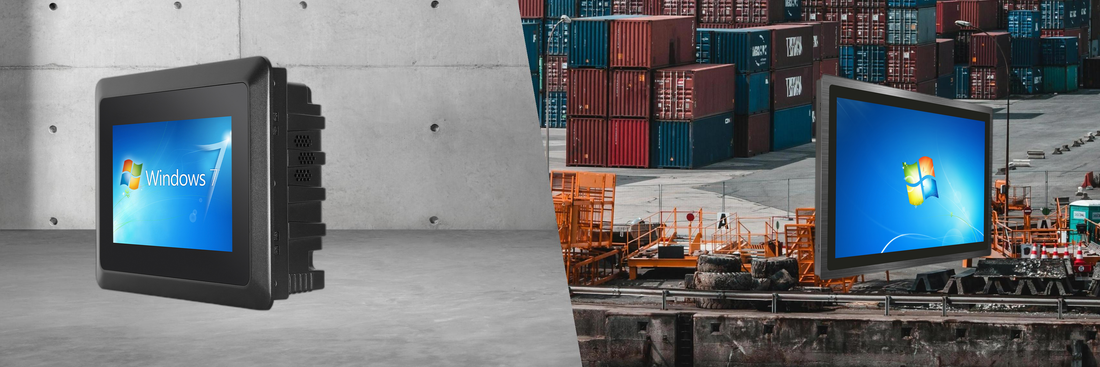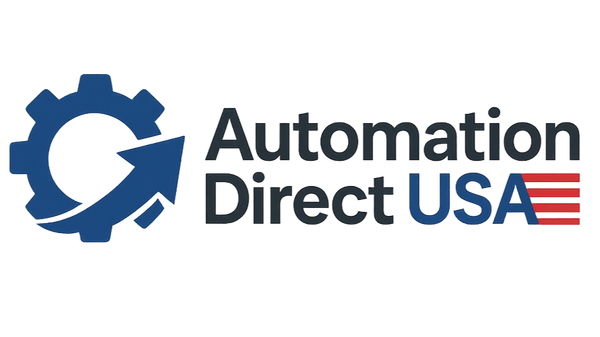
The Ultimate Guide to Selecting the Perfect Industrial Panel PC for Your Operations
The Ultimate Guide to Selecting the Perfect Industrial Panel PC for Your Operations
In the rapidly evolving world of industrial technology, Industrial Panel PCs (IPCs) play a pivotal role in enabling the seamless control and monitoring of processes across a wide array of industries. These devices serve as the backbone of automation, process control, and production monitoring, empowering businesses to operate with precision and efficiency. However, the key to achieving maximum benefits lies in selecting the right Industrial Panel PC that matches the specific needs of your industrial application.
This comprehensive guide delves into the critical factors you must consider when choosing an Industrial Panel PC, ensuring your decision will support your operations for the long term.
- Understanding Your Application Requirements
The first step in selecting the perfect Industrial Panel PC is to clearly define your operational requirements. Different industries demand varied features and specifications. For instance:
- Manufacturing: If you're in manufacturing, you may require a system that can integrate with automated machinery and provide real-time data on production efficiency.
- Logistics: For logistics and supply chain management, an IPC with robust connectivity options for GPS, RFID, and inventory control systems might be essential.
- Process Control: In sectors like oil & gas or pharmaceuticals, precise monitoring and control of systems are critical. An IPC with enhanced processing power and safety certifications could be paramount.
Each of these industries has unique operational conditions, and ensuring that the Industrial Panel PC meets these specific needs is vital for seamless integration.
- Performance and Processing Power: How Much is Enough?
When evaluating IPCs, it’s important to focus on their computing power and performance:
- Processor Type: The type and speed of the processor directly impact how well the system can handle intensive workloads. Most industrial applications need processors capable of running multiple processes simultaneously, so a multi-core CPU like Intel Core i5 or i7 may be suitable.
- RAM: For real-time applications like data acquisition or control systems, having sufficient RAM (typically 8GB or higher) ensures smooth operation without delays or glitches.
- Storage Options: Storage reliability is essential, especially in environments with high volumes of data. Opt for solid-state drives (SSDs) for enhanced durability and faster read/write speeds.
Ultimately, choose a system that not only meets your current processing needs but can handle future upgrades as your operational requirements grow.
- Display Characteristics: Size and User Experience
The display of an Industrial Panel PC is more than just a screen—it's the window into your operations. Choosing the right screen size and resolution can greatly enhance the efficiency and ease of use.
- Screen Size: Depending on where the IPC will be deployed, screen size may vary. For tasks that require detailed monitoring, a larger screen (19-24 inches) provides better visibility, while compact environments may benefit from smaller displays.
- Touchscreen Options: A touchscreen display can streamline operations by providing faster, more intuitive interactions. Capacitive touchscreens offer high responsiveness, while resistive screens may be more suitable for environments where users wear gloves or where precision is key.
- Brightness and Visibility: If the PC will be used outdoors or in areas with high ambient light, consider opting for a high-brightness display with anti-glare technology to ensure legibility in all conditions.
- Environmental Considerations: IP Ratings and Beyond
Industrial environments often present harsh conditions that consumer-grade PCs simply cannot handle. When choosing an Industrial Panel PC, assess the environmental factors in your facility:
- IP Rating: The Ingress Protection (IP) rating indicates the level of protection the IPC offers against solids (dust) and liquids (water). A higher IP rating, such as IP65 or IP67, ensures the system is protected against water spray and heavy dust exposure—crucial in industries like food processing or chemical manufacturing.
- Temperature Range: If your operations are in extreme environments (e.g., cold storage, foundries, or outdoor locations), verify that the IPC can withstand wide temperature ranges without performance degradation.
- Vibration and Shock Resistance: Rugged environments, such as mining or heavy machinery operation, may require an IPC with built-in shock and vibration resistance, ensuring the hardware remains stable even under challenging conditions.
- Connectivity Options: Staying Connected in a Modern World
Industrial systems require seamless integration with other devices, machinery, and networks. The connectivity features of an Industrial Panel PC are critical for ensuring smooth communication between different system components.
- USB and Serial Ports: USB 3.0 or higher ensures high-speed data transfers, while legacy serial ports may be necessary for integrating older machinery.
- Ethernet and Wi-Fi: Reliable network connectivity is essential, whether through wired Ethernet connections or wireless technologies like Wi-Fi 6. Dual-LAN support can add redundancy in critical applications.
- Specialized Interfaces: Depending on your industry, you may need additional interfaces such as HDMI for video output or GPIO (General Purpose Input/Output) for custom hardware integrations.
- Mounting Flexibility: Adaptability for Every Space
The physical layout of your facility may dictate the type of mounting options that are ideal for your IPC. Consider the following:
- Panel Mounting: This is ideal for embedding the PC into control panels or dashboards, providing a clean, integrated look.
- VESA Mounting: Standardized VESA mounts allow for flexibility, enabling the IPC to be affixed to walls, desks, or arms for easy repositioning.
- Rack Mounting: For server rooms or industrial setups that rely on centralized control, rack-mounted IPCs can help consolidate space.
Choosing the right mounting system not only enhances operational efficiency but also ensures optimal ergonomics for workers interacting with the device.
- Durability and Build Quality: Invest in Longevity
Durability is a top concern for IPCs that will be deployed in industrial environments. Consider the following aspects:
- Ruggedized Housing: Industrial Panel PCs are often housed in durable, corrosion-resistant materials such as stainless steel or aluminum. Ensure the enclosure meets industry standards for resistance to impact, moisture, and chemical exposure.
- Fanless Design: In dusty environments, fanless designs reduce the risk of particle ingress, extending the device’s operational life by minimizing the need for maintenance.
- Customization and Expandability: Planning for the Future
A crucial feature of any Industrial Panel PC is its ability to evolve with your operations. Whether through hardware expansion or software upgrades, choose a system that can grow alongside your business:
- Modular Design: A modular IPC allows for future upgrades, such as adding additional memory, storage, or even external GPUs for enhanced performance.
- Expansion Slots: Ensure the IPC has PCIe or other expansion slots available for additional cards, such as graphics accelerators or extra networking capabilities.
Additional Considerations for Making the Right Choice
Selecting the ideal Industrial Panel PC requires balancing performance, durability, connectivity, and user interaction. As technology advances, businesses must choose IPCs that not only meet their current needs but also offer flexibility for future growth.
For businesses looking for reliable and customizable IPC solutions, ensuring long-term support and seamless scalability is key. Learn more about how to optimize your industrial setup by contacting our experts at IMDTouch or email us at support@IMDTouch.com for further consultation on robust industrial-grade technology tailored to your specific needs.
